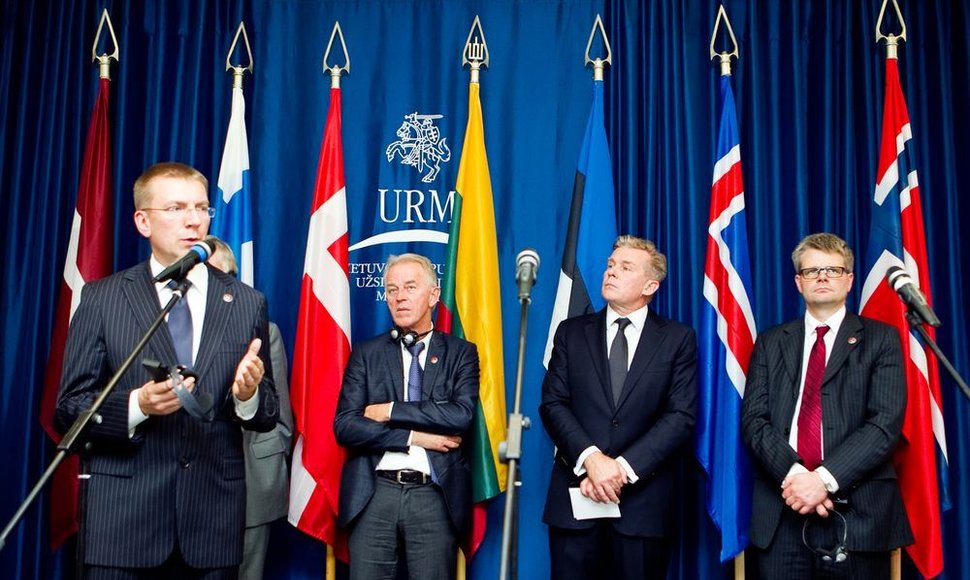The meeting was attended by the ministers of foreign affairs of Denmark, Estonia, Latvia, Lithuania, Norway, Finland, and Sweden, and the Secretary of State from the Icelandic Ministry for Foreign Affairs.
The President noted that NB8 unanimous position on financial discipline and responsible economic policy have helped overcome the recession more easily, ensure more rapid recovery, and better prepare for new global challenges.
The president underscored the results of successful Nordic-Baltic dialogue – power links with Sweden and Finland currently under construction, and the functioning regional energy market. Close cooperation of Northern European countries in the energy sphere, the Baltic States' joining the Nord Pool are highly significant steps in promoting competition and ensuring Lithuania's energy independence.
According to Grybauskaitė, cooperation of the eight countries is rapidly developing in the areas of security and defense, with joint military training being organized. The NB8 states work together in international missions. The Baltics actively participate in Northern Europe's defense formats and military exercises Amber Hope and Baltic Spirit conducted in the region. All the countries cooperate intensely to enhance cyber- and energy security as well as civil safety in the region.
"The Nordic-Baltic cooperation which started twenty years ago has become a unique phenomenon in Europe. The ability of the eight countries to coordinate their interests and work together towards common goals is what makes Northern Europe a distinctive region. According to the president, in a global world it becomes difficult for small countries to ensure individually effective protection of their people's interests, which triggers the need to search for cooperation forms useful to the entire region," the Press Service of the President said.
The continuity of NB8 cooperation must remain a key priority on Lithuania's foreign policy agenda even after elections to the Seimas, the Lithuanian president said.
Cooperation in the informal format uniting five Nordic and three Baltic countries began in 1992. Eight ministers hold a meeting in one of the eight countries every year. This year Lithuania is the host-country.
Last year the meeting took place in Helsinki and next year Sweden will take the lead.












